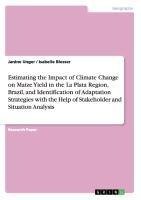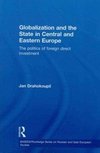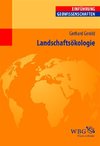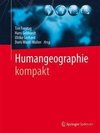
-
 Anglický jazyk
Anglický jazyk
Estimating the Impact of Climate Change on Maize Yield in the La Plata Region, Brazil, and Identification of Adaptation Strategies with the Help of Stakeholder and Situation Analysis
Autor: Isabelle Blesser
Research Paper (postgraduate) from the year 2012 in the subject Geography / Earth Science - Meteorology, Aeronomy, Climatology, grade: 1,3, Humboldt-University of Berlin (Leibniz-Zentrum für Agrarlandschaftsforschung (ZALF) e. V.), language: English, abstract:... Viac o knihe
Na objednávku, dodanie 2-4 týždne
44.37 €
bežná cena: 49.30 €
O knihe
Research Paper (postgraduate) from the year 2012 in the subject Geography / Earth Science - Meteorology, Aeronomy, Climatology, grade: 1,3, Humboldt-University of Berlin (Leibniz-Zentrum für Agrarlandschaftsforschung (ZALF) e. V.), language: English, abstract: Brazil is confronted with a high risk of vulnerability to climate change, not least due to its fragile, biologically diverse ecosystems. Taking into account its size in geographic, demographic and economic dimensions, the adaptation to climate change problems becomes highly complex. Changing rainfall patterns will mean poorer water resources and a reduced water supply. Agriculture will be affected, exacerbating the risk of famines. Less rain will also affect the hydropower supply which provides more than 80 per cent of the electricity Brazil generates. Floods, which are already a serious problem for various regions, may increase.
Given abundant natural resources, Brazil started early to establish its energy sector largely on renewables. Therefore, in terms of mitigation Brazil has been doing very well. According to a research taking out by the NGO GermanWatch, that analyzed the efforts made by 56 countries being responsible for over 90 percent of CO2 emissions, Brazil is found at rank 8 (GermanWatch, 2008). But the country still needs to assess its vulnerability to climate change so it can prepare for the unavoidable effects of climate change and support policy decisions on how to adapt to the inevitable impacts. With a great share of the economy depending on natural resources and the importance of the agricultural sector, climate change adaptation will play a crucial role in promoting further economic growth
and promote food security. Unfortunately, in this field, Brazil is late in taking action.
While the challenge of mitigation is global, adaptation must take place mainly at the local and regional level. As climate is a highly complex system with a lot of detailed factors interacting with and influencing both global and local outcomes, computer modeling has to work with smaller cells to analyze local structures that then can be used to identify specific adaptation strategies. How climate change will affect agricultural productivity is not yet understood in detail. But possible effects on crops that are particularly important to the country's economy, such as maize, soybean, wheat and coffee, are a great concern.
In order to get an idea, how much the climate will affect the yield of maize in the next few decades we used a plant modelling program called MoNiCA. The plant modelling program simulate the maize yield until 2039 based on several input variables and climate scenarios.
- Vydavateľstvo: GRIN Verlag
- Rok vydania: 2012
- Formát: Paperback
- Rozmer: 210 x 148 mm
- Jazyk: Anglický jazyk
- ISBN: 9783656319092




 Nemecký jazyk
Nemecký jazyk 







